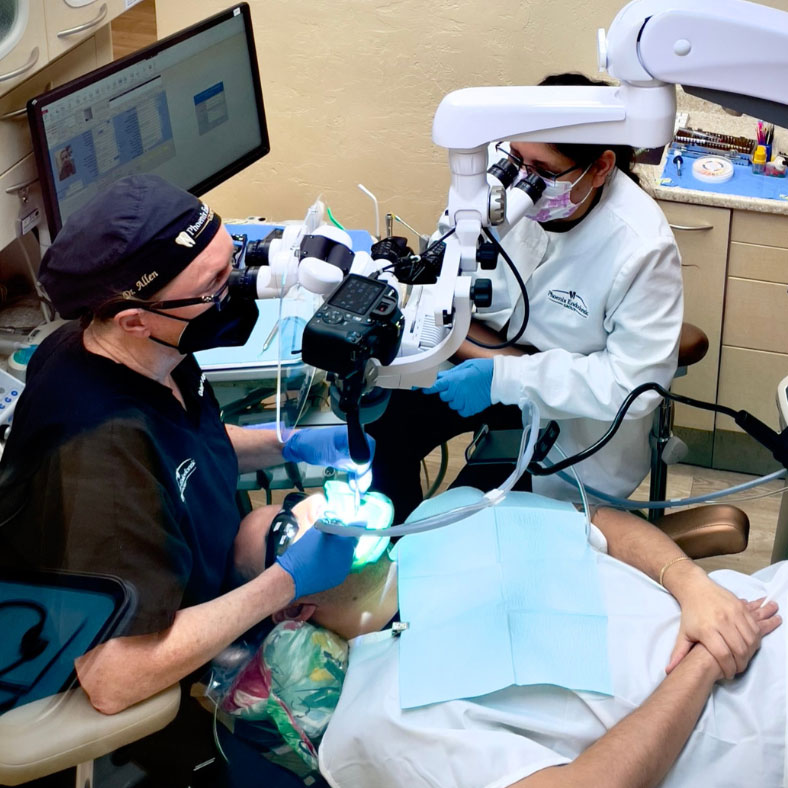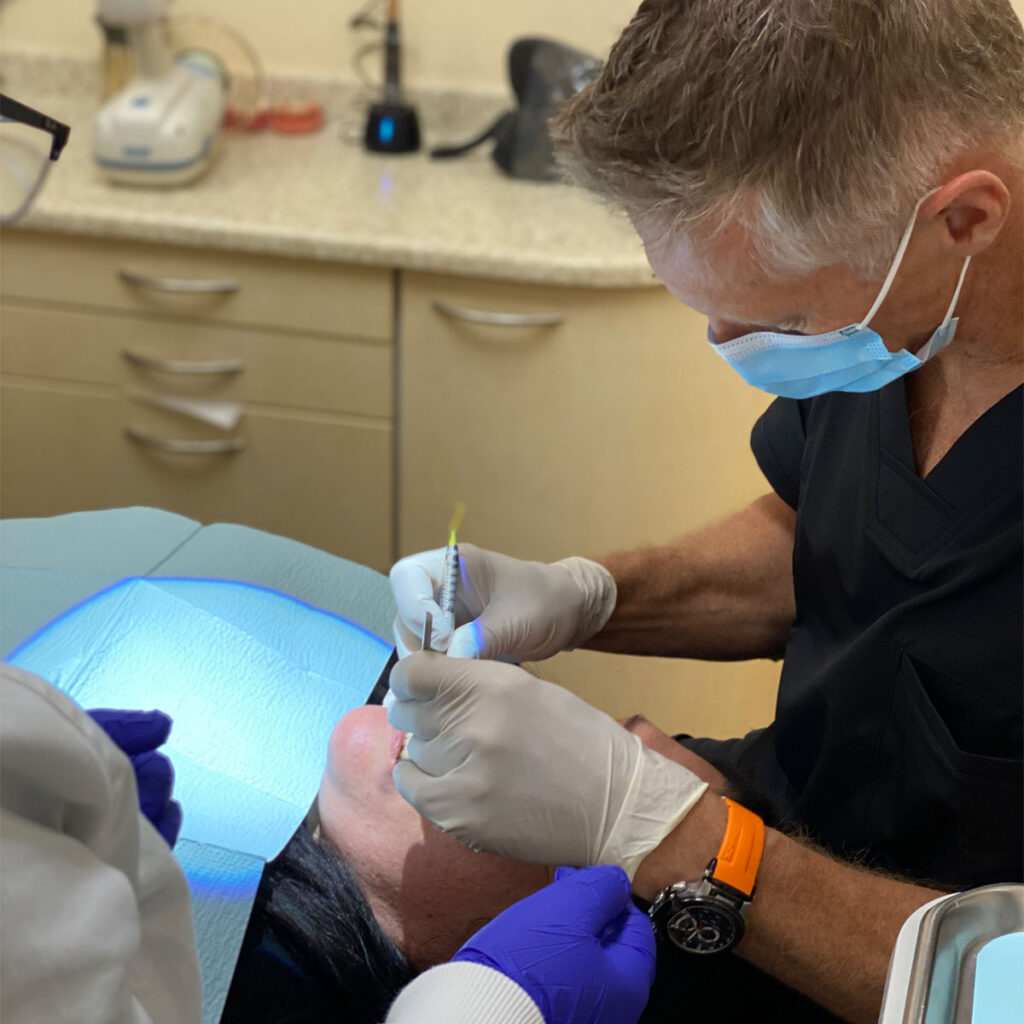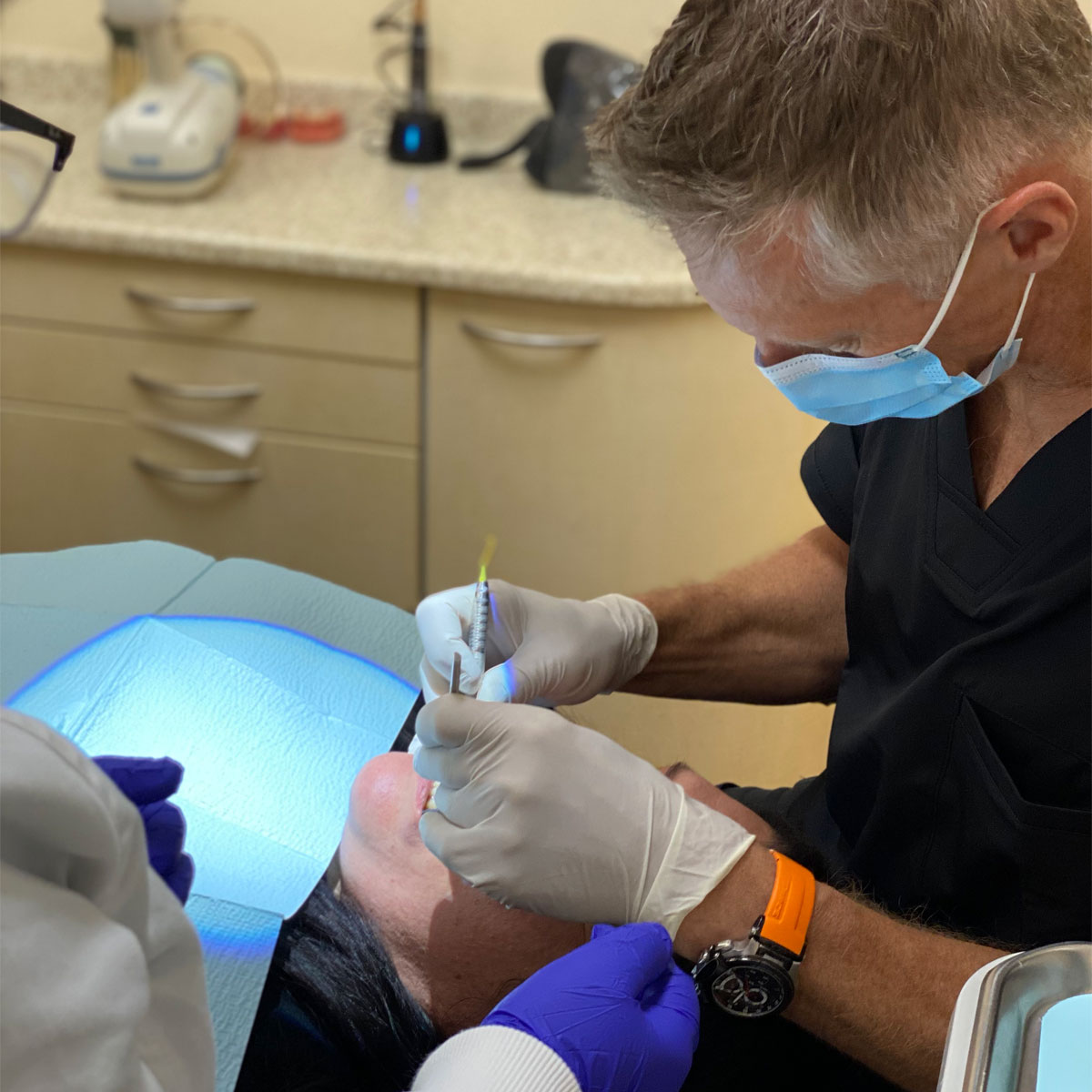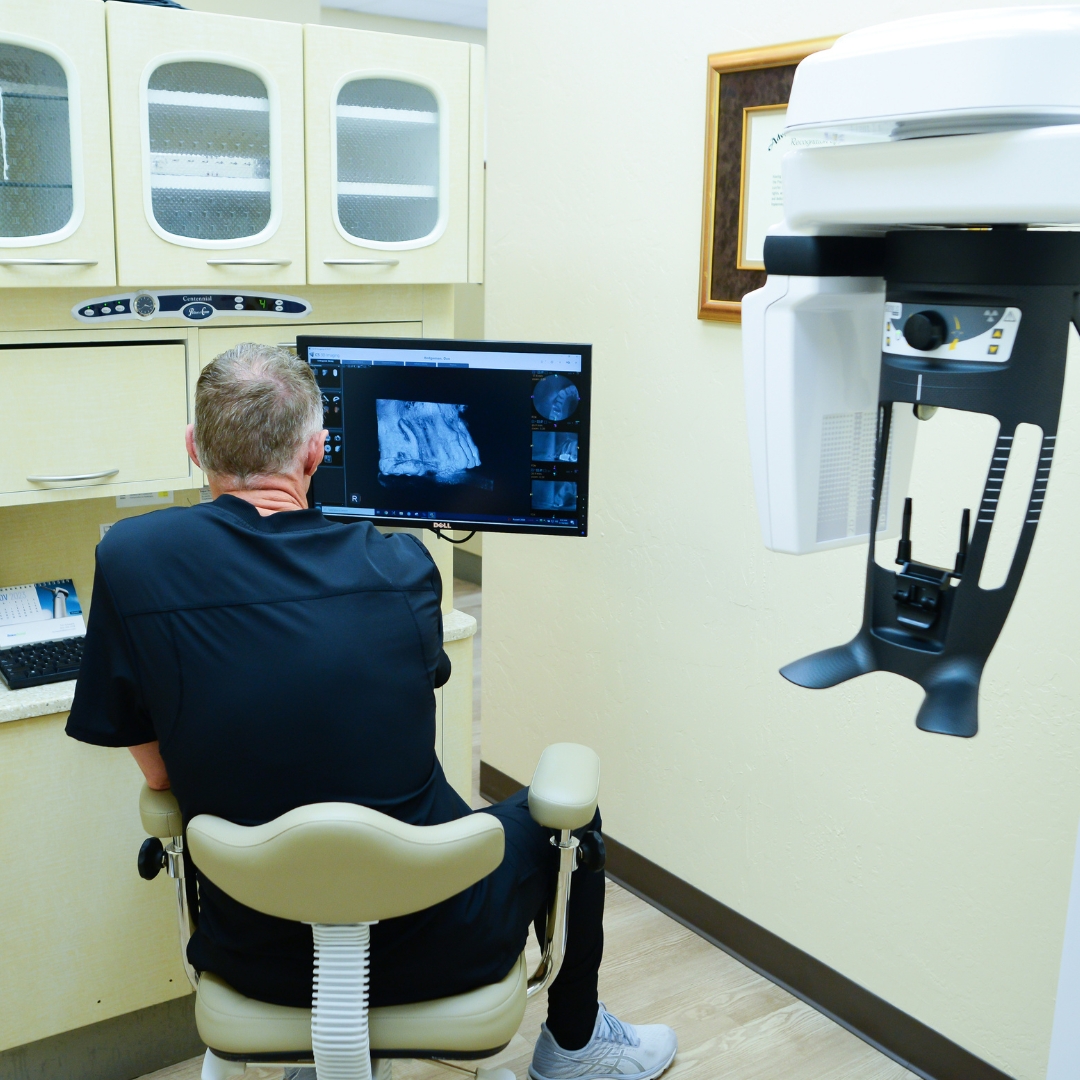Root Canal Therapy
The Next Generation Of Root Canal Care
One of the most common of modern dental procedures, more than 14 million root canals are performed each year by endodontists and other dental professionals. Root canals can reduce pain and address infection or injury within the tooth, save your natural teeth, and prevent the need for dental implants or bridges.
Root Canal Procedure
Phoenix Endodontic Group employs state-of-the-art technology to provide compassionate, effective care to our patients. Our customized comprehensive care includes education about root canal therapy, enabling fully informed decisions concerning your dental health. To facilitate the education process, we’ve compiled answers below to some of the most common questions our patients bring.

What part of the tooth is treated during a root canal?
The goal with root canal therapy is to remove infected pulp from the inside of your tooth. Dental pulp can become infected due to trauma to the tooth, deep decay, cracks and chips, or repeated dental procedures.
Your endodontist removes the pulp, cleans and files the canals in your tooth roots, and seals them with a biocompatible material.
What symptoms can suggest the need for a root canal procedure?
You should visit your dentist promptly if you experience any of the following symptoms of a potential dental pulp infection:
- Visible injury to the tooth
- Swelling of the gums around the tooth
- A pimple or boil on the gums beneath the tooth
- Pain in the tooth and surrounding gums
- Sensitivity to hot or cold foods, beverages, or air
Some patients experience mild or no symptoms, yet still need a root canal. Keeping up with regular dental exams ensures any changes in your teeth can be properly diagnosed before your condition worsens.
What happens during a root canal procedure?
The treatment team will use local anesthesia to numb the area around the tooth and place a dental dam to create a sanitary workspace for the endodontist. During the procedure itself, the injured/infected dental pulp is removed and the root canal system is thoroughly cleaned and sealed. Your endodontist will also add a temporary filling to aid the healing process.
What can I expect after my root canal is completed?
You will be able to drive home after your treatment, and you probably will be comfortable returning to your normal routine. It is rare for endodontic patients to experience complications after a routine root canal treatment. If a problem does occur, however, we are available at all times to respond.


What happens during a root canal procedure?
The treatment team will use local anesthesia to numb the area around the tooth and place a dental dam to create a sanitary workspace for the endodontist. During the procedure itself, the injured/infected dental pulp is removed and the root canal system is thoroughly cleaned and sealed. Your endodontist will also add a temporary filling to aid the healing process.
What can I expect after my root canal is completed?
You will be able to drive home after your treatment, and you probably will be comfortable returning to your normal routine. It is rare for endodontic patients to experience complications after a routine root canal treatment. If a problem does occur, however, we are available at all times to respond.

Why do I need a crown for my tooth treated with a root canal?
After a root canal, the temporary filling placed in your tooth will need to be replaced with a crown or other permanent restoration. This is necessary to protect your treated tooth from further infection or injury.
Our office will send a record of your treatment to your restorative dentist. You should contact their office for a follow-up restoration within a few weeks of completion at our office. Your restorative dentist will decide on what type of restoration is necessary to protect your tooth.
How successful are root canal treatments?
Recent studies show that root canal is successful in 90% of cases when the treatment is completed with a permanent crown. To prevent further decay, continue to practice good dental hygiene and visit your general dentist for regularly scheduled examinations.
How much will my root canal cost?
The cost associated with a root canal varies. Factors such as the severity of damage to the affected tooth and which tooth is affected matter. In general, though, endodontic treatment is much less expensive than replacement with a dental implant.
Additional Questions? Give Us A Call!
Our endodontists and support staff are always willing to field your root canal therapy questions. Call us at (602) 242-4745 or use the message form on our contact page to get in touch with us.
